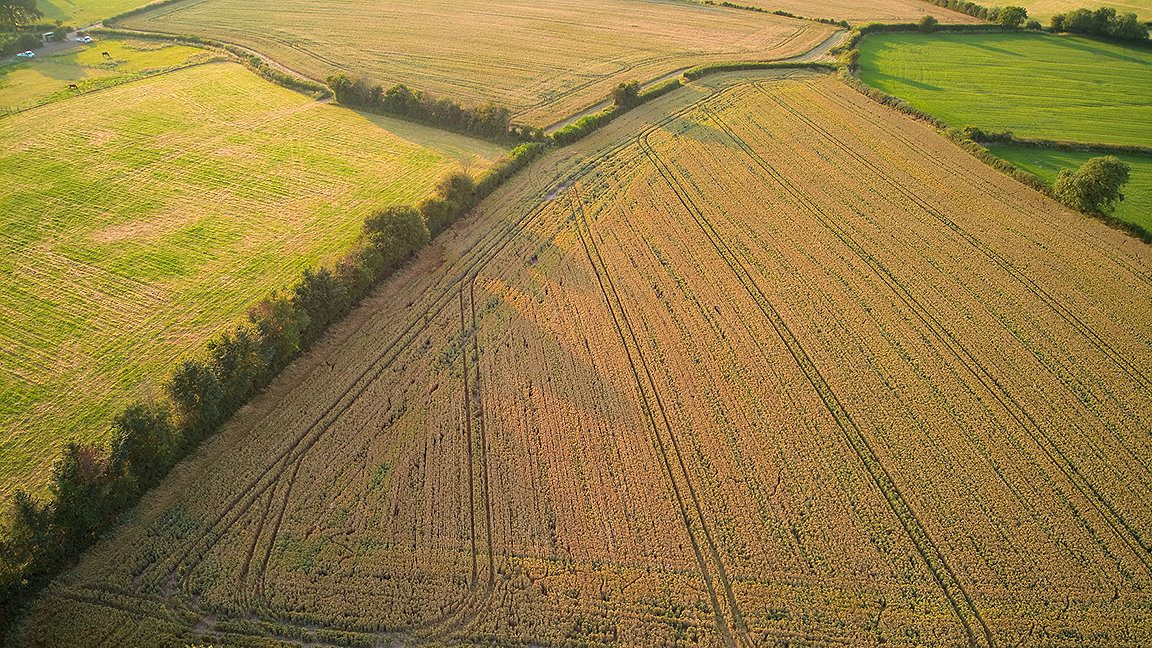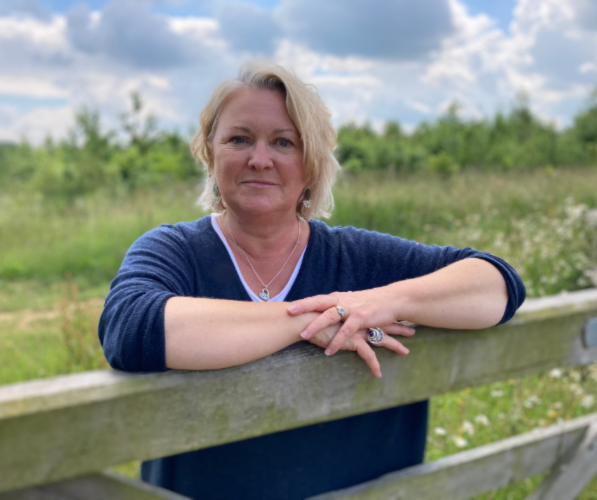
LJ: How is the Food, Farming & Countryside Commission (FFCC) involved in the government's land-use framework?
Sue Pritchard: We had proposed a land-use framework in Our Future in the Land report in 2019, and while lots of people are now talking about such a framework, they mean different things by it, and the government is in turn developing its own. We're still advocating for our proposed version, but that may not be what the government produces. Ministers are exploring what the official framework should include, and then it will go out to consultation.
LJ: Why did you propose a land-use framework?
SP: It became clear that land was at the heart of some of the tricky issues that everybody was trying to deal with, but which had for many years been kicked into the proverbial long grass.
Yet when we were working with different stakeholders, interest groups and communities as part of our inquiry up to 2018, we discovered people were ready to think about how to understand and mediate all the complex decisions we are going to have to make about land. We need to do so if we are to begin to respond to all the government's priorities relating to land or land use, as well as tackling the climate crisis.
We were incredibly encouraged to find that all those organisations that had historically been anxious about a land-use strategy or a top-down plan were now willing to think about an enabling framework to mediate the questions and challenges. So we developed a set of principles and practices that we think could underpin a land-use framework.
We've subsequently been piloting a version in Devon and in Cambridgeshire to test the practicalities of this. Since then, a lot of other people have also called for a framework, such as the Geospatial Commission, and Henry Dimbleby in the National Food Strategy he produced for the government in 2021.
The government finally responded to the latter strategy last year and agreed to publish a land-use framework, but is only now shaping what that should look like. In December, the House of Lords Land Use in England Committee published a report supporting the principles we've described, and the government will also respond to that.
What's distinctive about the FFCC proposal and the work we're doing with partners and stakeholders in Devon and Cambridgeshire is that multifunctionality is at the heart. We argue that, at a minimum, a land-use framework for England has got to be owned and implemented across government, covering all the major land-use changes, to try to tackle the current approaches that are unhelpfully siloed.
We think that, in terms of land-use decisions, changes should be considered and judged against several issues at the same time. For example, nature recovery needs to be considered alongside food production, changes in energy policy, infrastructure development and housing provision – particularly affordable housing in rural communities – so all the different economic, environmental and social targets are understood in relation to each other, and all in service of improving public value.
We talk about the data that's used, and its integration for better decision-making. Who has access to it? Whose data counts, and whose evidence counts? The way we frame it should be neither just top-down nor bottom-up, but foster meaningful engagement between landowners, land managers, businesses, institutional landowners, communities and civil society, to balance all these different interests.
It also has to wrap lightly around other plans, such as the National Planning Policy Framework and emerging Local Nature Recovery Strategies, to ensure they are properly integrated and aligned. This is true across all sorts of interconnected policy issues.
You might argue that climate change is a similar challenge. We have taken guidance from the work Sir Michael Barber did for the Treasury in 2016/17 to produce a public value framework. This was developed to improve the use of public money and resources, and to ensure government departments work better together.
We think it's a good cue for thinking differently about land. We're thrilled that Barber is co-chairing our Devon pilot, as he's a resident of the county and has a keen interest in these issues.
So, we're also building our approach on a set of principles that government has tested and already adopted. But that doesn't mean the problem is solved – not at all. Siloes are a deeply entrenched cultural issue in government and that's not going to be easy to solve.
'Siloes are a deeply entrenched cultural issue in government, and that's not going to be easy to solve'
LJ: Can you tell me about these two case studies?
SP: We're trialling the frameworks in Devon and Cambridgeshire because this is where we had been working for some time, with a cross-section of local leaders. Devon and Cambridgeshire were keen to be involved because they were having to make land-use decisions on contested, politically charged issues and wanted help to do it better.
In Devon we are supported by grants from the Environment Agency, which was particularly focused on flood risk and mitigation. We also worked with Dartmoor National Park, farming organisations, citizen groups, and the county council, thinking about balancing different county-wide issues and priorities, as well as more local ones. We wanted to include perspectives from different citizens and stakeholders in the debate, to see how those difficult decisions could be made more systematically and transparently.
In Cambridgeshire the pressures are about housing and water – both droughts and flood risks. While Devon had lots of grassroots engagement in flood management for the Exe valley and nature recovery, in Cambridgeshire we brought together farmers and landowners, local authorities, business groups and the utility Anglian Water, for example, to look at county-wide priorities where they were being particularly tested by housing need. In Cambridgeshire, we have been piloting a spatial modelling prototype that will help those organisations, agencies and communities bring data together and model it across different decisions, and then help them judge what's most important.
LJ: How far along are the pilots?
SP: In Devon we will come to the end of the first stage of the pilot in the summer. We will have a working prototype of a land-use framework that has been tested against different projects operating at different spatial scales along the River Exe catchment. From that, we will derive principles for the rest of the county.
In Cambridgeshire we're just starting the spatial modelling prototype. We'll have an early version in the spring to start working with.
We'll publish initial lessons learnt from the process in the weeks to come, with a further evaluation to follow in June. But the government's work won't be complete by then. The Department for Environment, Food & Rural Affairs (DEFRA)'s land-use framework proposition may well be out for consultation, and we may want to feed into it. Depending on what it says, we could support it or advocate some different ideas.
We also know the Labour Party has committed to introducing a land-use framework, and we'll be keen to see the detailed proposal and contribute to it since there will be an election next year.
LJ: Do you have any inkling what the government might come up with?
SP: Well, it's early days. The risk might be that DEFRA just focuses on those areas of a land-use framework that are within its gift, which would be almost solely issues connected to the Environment Act 2021 and Local Nature Recovery Strategies. It may not encompass land uses that are the prerogative of other departments such as housing, infrastructure, energy and transport.
DEFRA could go a bit further and work with the Department for Levelling Up, Housing & Communities, to propose a framework that considers housing and particularly rural housing.
But my ideal scenario would be that this framework will operate across relevant government departments, including the new Departments for Energy Security and Net Zero, and for Business and Trade, taking into account all the different pressures on, demands for and opportunities in land. One way of moving forward quickly could be through using and adapting Barber's public value framework.
'My ideal scenario would be that a framework will operate across all government departments'
LJ: How do farmers and landowners feel about environmental land management schemes (ELMs)?
SP: They have been desperate for more clarity and more specifics about the detail of the ELM schemes. This is coming through now, thanks to recent government announcements about what's included in the schemes, and the sums attached to them. So, this has helped some farmers a lot – but, thus far, not all farmers.
Upland and small family farms do not yet see a great deal on offer for them. They all want a better sense of the government's vision for the countryside and land management, and land management in the context of the other pressures that we have talked about: namely food production and food security in rural communities.
One example we've heard about is farmers struggling to recruit people for work in picking and packing, leading to good food left in fields and shortages in the shops.
People can't work where they can't afford to live. Farmers are aware that, although ELMs are an important component, a land-use framework also has to address some of the other critical issues that underpin a flourishing economy such as access to housing and good green work.
In terms of ELMs, what's important is to get a clear sense of direction from the government, and ensure that the payments associated with the components of these schemes cover the actual cost of the work for public goods such as nature recovery, soil health, climate mitigation, water quality and public access. Farmers need to make a living from their work, and the danger is that they will not participate because the sums being offered do not even cover the cost of work itself.
LJ: What about the importance of food production?
SP: The government has a plethora of priorities – in fact, the Royal Society suggests in a recent report that there are so many that we would need an area twice the size of Wales to meet all of them, if we don't think about multifunctionality and stacking enterprises and activities. Stacking involves a piece of land being used for more than one purpose, such as to capture carbon, restore biodiversity, increase habitats, reduce flooding and grow food.
Even with all that in mind, food production and national food security are not thought of in a strategic way. We are now seeing the results of that with the shortage of familiar foods on the shelves.
Given everything we know about geopolitics and global conflict, and the impact of climate change and biodiversity loss, it is important that, as a country, we think and plan carefully about the food we eat, where it comes from, how and where it's grown, and what effect that has on planetary health and biodiversity, as well as our own health and well-being.
LJ: Whose support is needed for this land-use framework to work?
SP: It sounds cliched to say everyone. But – and depending on which issues we talk about – everyone will have some stake in the outcomes. If we're talking about land-use frameworks tackling the climate and nature crisis, we all have skin in that game.
If we talk about land-use changes that are about restoring nature and biodiversity, that might have particular relevance for the landowners and the land managers who are changing land use to tackle those problems. Yet this not only creates a lot of value for them and their community, but also for society more widely.
If it's about balancing choices between housing, energy and food production, then people who live in that community will want to have a say in that conversation. Farmers have a stake in it, and local organisations and public bodies do too; for example, where councils want to think more about how public procurement can be used to support the development of their communities by sourcing more healthful fruit and vegetables or sustainably produced local meat and dairy.
For many of these issues, the government sets national targets and aspirations. But how they're met and what they mean has to be worked through at a more local level. We think county level is broadly the right scale. But for some things it should be at town, or even community level, because how they work will be negotiated depending on the context, conditions, opportunities and risks there, both now and in the future.
We have plenty of issues to work with now, but we also have to think about what will happen if the world exceeds 1.5°C of warming. If we don't act to limit climate change right now, we are likely to see increased flooding and drought and even greater pressure on land.
Land-use changes are going to happen whether we've thought about this properly or not. And those big questions are best understood, mediated and prioritised in the communities that have to try to make them work now and in the future.
FFCC aims to transform food system
The Food, Farming & Countryside Commission (FFCC) was set up in 2017 to explore practical and radical responses to the climate, nature, health and economic crises of our time. It aims for:
- healthful food to be everyone's business, levelling the playing field for a fair food system
- farming to be a force for change, with a transition plan for agroecology by 2030 and the resources to back it
- the countryside to work for everyone, with a framework for sustainable land use and nature restoration, leading to flourishing rural economies and communities where people can afford to live and work
- money to flow where it is needed, to align investment with the priorities for a just transition.
Partnering with leaders across diverse sectors, disciplines and places, and focusing on difficult issues, we have opened up new possibilities, helped shift public narratives and expectations, and created the conditions for governments and businesses to propose and implement progressive policies and actions.


